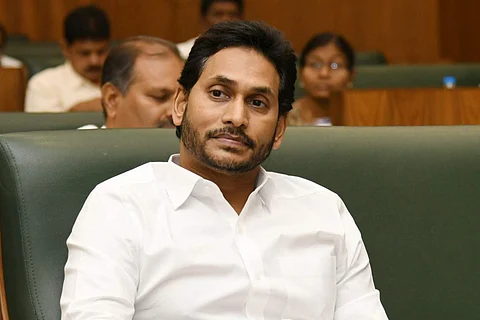

The Andhra Pradesh Assembly adopted a resolution on Friday, March 24, urging the Union government to include the Boya or Valmiki community specifically from the state’s Rayalaseema region in the list of Scheduled Tribes (ST). The resolution seeks the inclusion of Boyas from the erstwhile Kurnool, Kadapa, Anantapur and Chittoor districts (as defined before the district reorganisation in April last year) – home to a large population of the community – in the ST list. This move contradicts the community's demand to be classified as ST across the state without regional restrictions. At present, Boyas enjoy ST status only in a few areas in Andhra Pradesh that fall under the Integrated Tribal Development Agency (ITDA). In the remaining areas, they are categorised as Backward Classes (A).
Speaking in the Assembly, Chief Minister YS Jagan Mohan Reddy dismissed reports that the move would result in a reduction of the quota in government jobs and educational institutions for ST communities living in ITDA areas. He assured that communities in Agency areas would not be affected, due to the zoning system in force as per the six-point formula of 1973, which accords preference to local candidates. Jagan said that the inclusion may only have a negligible impact on Group 1 jobs which fall under the non-zoning category.
A one-man commission comprising retired IAS officer Samuel Anand Kumar — constituted in October last year to study the social and economic conditions of the Boyas in the four erstwhile districts of Rayalaseema — as well as the state ST Commission, agreed with this assessment, said Jagan. He noted that the resolution was in line with his promise to the Boya community made during his padayatra preceding the 2019 Assembly election.
However, members of the Boya community who have been fighting for ST status expressed disappointment with the partial fulfilment of the promise. The resolution, which is exclusive to Rayalaseema, leaves out the coastal Andhra and north Andhra regions.
Speaking to TNM, Jakkula Srinivas, general secretary of the Andhra Pradesh Valmiki Boya Sangam (APVBS), said that the latest resolution has created yet another regional classification for the community. “For more than six decades, the demand has been to remove area restrictions [within ITDAs], but instead of rectifying this, this resolution adds one more category of Rayalaseema to the existing Agency and non-Agency classification,” he said.
Srinivas also said that the multiple committees set up by the Union and state government in the past — such as the Satya Pal Committee and Chellappa Commission — had all recommended removing area restrictions while granting ST status to Boyas. “The previous Telugu Desam Party (TDP) government had also passed a resolution without mention of any area restrictions,” he noted. In 2017, the Chandrababu Naidu-led TDP government in Andhra Pradesh had passed a similar resolution seeking inclusion of Boyas and their subsects in the ST list, with no regional restrictions. However, it did not materialise as the final decision rests with the President.
APVBS president Kranti Naidu believes that the latest study by Samuel Anand Kumar only considered the districts bordering Karnataka and Tamil Nadu, as both neighbouring states recognise the Boya or Valmiki community as ST unlike Andhra Pradesh. While acknowledging that the population of the community is relatively low outside Rayalaseema, he said that the community is socially, educationally and economically backward in other districts too. “The study did not evaluate the community’s backwardness within the state. The community is present as a minority in other districts [outside Rayalaseema], and their socio-economic conditions in these districts are even worse. But the committee failed to acknowledge this,” said Kranti Naidu.
“What is the reason [behind limiting the resolution to Rayalaseema] if not for votes from a community that can affect election outcomes?” Kranti Naidu questioned, alleging that the move would further create disparities among members of the Boya community residing outside Agency areas.
While the state government can only send a resolution passed in the Assembly requesting to grant Scheduled Caste or Scheduled Tribe status to a certain community, the Union government, the National Commission for Scheduled Tribes, and the President must also give their assent for a certain community to be added to the ST list. However, Boya activists say the onus is on the state government to follow up with the Union government and exert pressure to ensure the resolution is accepted and enforced.
The Andhra Pradesh Assembly also adopted another resolution on Friday, requesting the Union government to extend SC status to the members of Scheduled Caste communities who have converted to Christianity. CM Jagan noted that people’s economic and social status doesn't change automatically just because they converted to another religion.